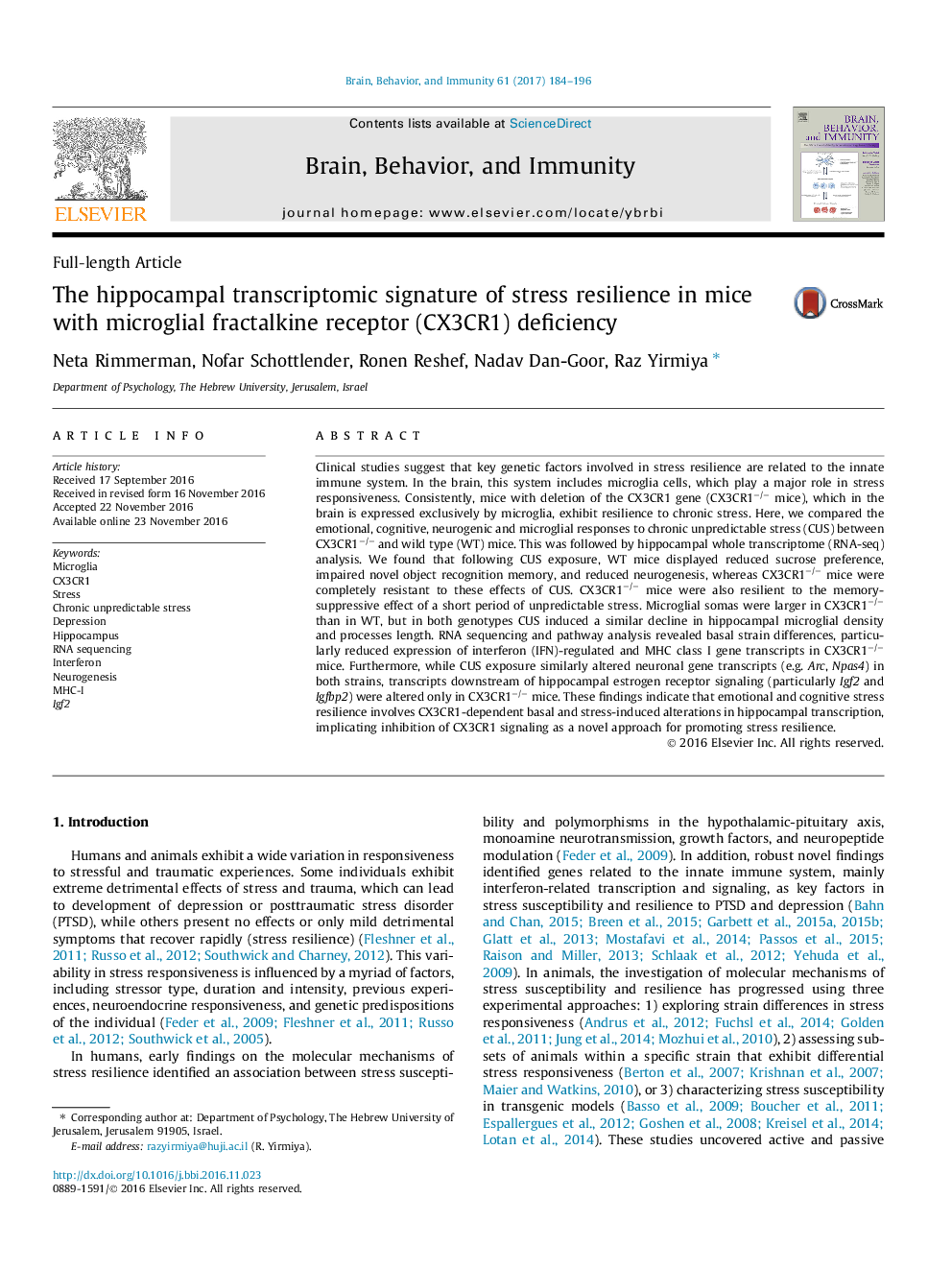| کد مقاله | کد نشریه | سال انتشار | مقاله انگلیسی | نسخه تمام متن |
|---|---|---|---|---|
| 5040701 | 1473906 | 2017 | 13 صفحه PDF | دانلود رایگان |

- CX3CR1 deficiency confers resilience to the hedonic and cognitive effects of stress.
- CX3CR1â/â mice exhibit resistance to stress-induced neurogenesis suppression.
- CX3CR1â/â mice exhibit altered hippocampal microglial morphology.
- Reduced IFN-regulated transcription in CX3CR1â/â mice associates with passive resilience.
- Increased estrogenic-regulated transcription in CX3CR1â/â mice associates with active resilience.
Clinical studies suggest that key genetic factors involved in stress resilience are related to the innate immune system. In the brain, this system includes microglia cells, which play a major role in stress responsiveness. Consistently, mice with deletion of the CX3CR1 gene (CX3CR1â/â mice), which in the brain is expressed exclusively by microglia, exhibit resilience to chronic stress. Here, we compared the emotional, cognitive, neurogenic and microglial responses to chronic unpredictable stress (CUS) between CX3CR1â/â and wild type (WT) mice. This was followed by hippocampal whole transcriptome (RNA-seq) analysis. We found that following CUS exposure, WT mice displayed reduced sucrose preference, impaired novel object recognition memory, and reduced neurogenesis, whereas CX3CR1â/â mice were completely resistant to these effects of CUS. CX3CR1â/â mice were also resilient to the memory-suppressive effect of a short period of unpredictable stress. Microglial somas were larger in CX3CR1â/â than in WT, but in both genotypes CUS induced a similar decline in hippocampal microglial density and processes length. RNA sequencing and pathway analysis revealed basal strain differences, particularly reduced expression of interferon (IFN)-regulated and MHC class I gene transcripts in CX3CR1â/â mice. Furthermore, while CUS exposure similarly altered neuronal gene transcripts (e.g. Arc, Npas4) in both strains, transcripts downstream of hippocampal estrogen receptor signaling (particularly Igf2 and Igfbp2) were altered only in CX3CR1â/â mice. These findings indicate that emotional and cognitive stress resilience involves CX3CR1-dependent basal and stress-induced alterations in hippocampal transcription, implicating inhibition of CX3CR1 signaling as a novel approach for promoting stress resilience.
Journal: Brain, Behavior, and Immunity - Volume 61, March 2017, Pages 184-196